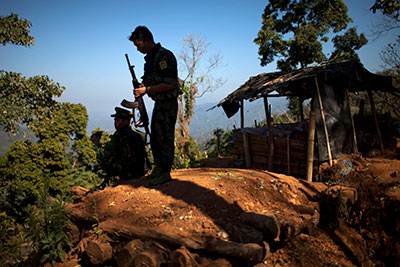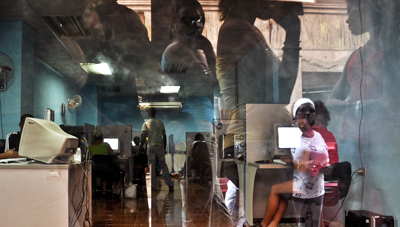@PresRajapaksa draws snark, concern, and criticism
Here is a quick pointer to one of Sri Lanka’s few remaining independent media sources, Groundviews, which just posted a lengthy look at the president’s newfound interest in social media: “The Sri Lankan President’s Twitter archive and Propaganda 2.0: New challenges for online dissent.” In a country where there isn’t all that much to laugh…
Egyptian court bans YouTube for one month
The Cairo Administrative Court ordered the government-run National Telecommunication Regulation Authority (NTRA) on February 9, 2013, to ban YouTube for one month after the website failed to remove a video widely considered anti-Islamic, according to news reports. Similar judicial attempts to block websites have been overturned on appeal in the past.
Kashmir restricts cable TV, Internet service
Authorities in the Indian state of Jammu and Kashmir on February 9, 2013, ordered citizens to remain indoors and restricted mobile Internet service and cable television across several districts in the lead-up to a controversial execution of a militant from the region, according to news reports.

As censorship wanes, cyberattacks rise in Burma
Cyberattacks on news websites and apparent government hacking into journalists’ email accounts have raised new questions about the integrity of media reforms in Burma. The New York Times reported on Sunday that several journalists who regularly cover Burma-related news recently received warning messages from Google that their email accounts may have been hacked by “state-sponsored…

Eating a cable: Internet access still elusive in Cuba
There is a popular expression in Cuba that is synonymous with difficulty and crisis. When you want to indicate that someone is doing badly economically, it is sufficient to say that he is “eating a cable.” Street humor has identified the act of chewing and swallowing a bundle of wires with scarcity and material want.…

Drawing lessons from Chinese attacks on US media
Not every media company is as tempting a target for hackers as The New York Times, The Washington Post, or The Wall Street Journal. Not every company can afford high-priced computer security consultants, either. Is there anything that everyday reporters and their editors can learn about protecting themselves, based on the revelatory details the Times…

Vietnam detains blogger who covered corruption
Bangkok, February 1, 2013–In a widening crackdown on online expression, Vietnamese security officials have arrested critical independent blogger Le Anh Hung and are holding him against his will in a psychiatric institution, news reports said. The Committee to Protect Journalists condemns the arrest and calls on authorities to immediately release Hung and all other journalists…